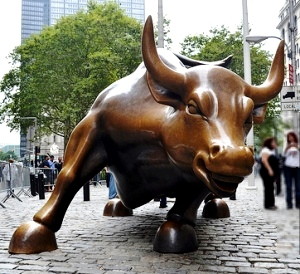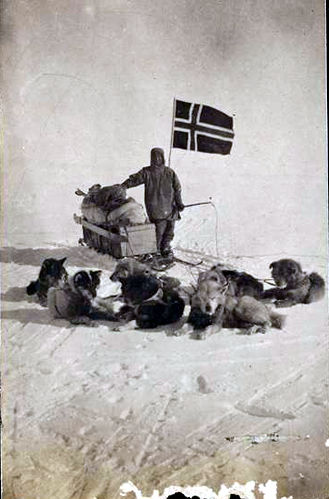
Apparently many of us in this wealthy nation agree with our Prime Minister that if we spend enough money, there will be endless sunny days ahead. Given that, according to the TD Bank, Canada’s deficit for the current fiscal year could be $34 billion, and the debt load of individual Canadians has jumped upward again, we must be well on our way to a state of exquisite euphoria. Possibly I’m experiencing some puzzlement at this thinking because I grew up under the influence of parents who lived through the Great Depression and weren’t aware of this “amassing wealth by spending” formula.
Having some experience with life’s evasive curve balls, I’m inclined to agree with Aldous Huxley’s observation “reality doesn’t cease to exist just because we ignore it.” Anyone living a high roller life style based on high limit credit cards could benefit from reading “Great by Choice. Uncertainty, Chaos and Luck: Why some thrive despite them all.” Based on unstinting research, authors Jim Collins and Morton T Hanson offer a perspective that would likely be disconcerting to those at the highest echelons of most governments, and also some deep in debt citizens. They suggest “the dominant pattern of history is not stability but instability and disruption.” They contend we need to expect chaos and upheaval in our lives, and plan for them.
Collins and Hanson compare the strategies of highly successful companies operating in turbulent conditions, with others that have achieved only mediocre results in similar circumstances. It’s when they step away from the corporate world and examine the strategies of 2 polar expeditions that their findings and recommendations become fascinating and useful at a personal level.
In June, 1910, two rival expeditions set out for the South Pole, one under the leadership of Roald Amundsen and the other led by Robert Falcon Scott.
Amundsen’s philosophy is succinctly captured by his statement “Victory awaits him who has everything in order. Luck, people call it. Defeat is certain for him who has neglected to take the necessary precautions in time. This is called bad luck.”
Amundsen’s preparation fully backs up his words. To condition his body, he rode 2000 miles on a bike. He lived with the Inuit to learn about surviving in extreme cold weather. Knowing he might be forced to eat food to which he wasn’t accustomed, he ate raw dolphin meat. He enlisted expert, well conditioned skiers for the expedition and used dogs because they were suited to harsh polar conditions. Also, he could shoot penguins and seals to feed the dogs. For the crew he took along plenty of extra food and set up 7 depots. He made a decision to travel 20 miles every day, when the sun was shining and also in snow and cold wind. Along the trail he erected 6 foot high cairns as markers for the return journey.
Scott followed a less rigorous, less disciplined approach to preparation. He didn’t require his crew to become proficient on skis. He chose ponies and motorized sleighs to haul supplies. All feed for the ponies needed to be hauled. Because, unlike dogs, they sweated, they needed to be dried with blankets. The ponies didn’t have the stamina and died along the way. The engines on the motorized sleighs cracked in the frigid temperatures. When the ponies and motorized sleighs gave out, the men needed to haul the sleighs. Scott had not taken extra food so there weren’t sufficient calories for the more strenuous labour. He set up only 2 depots.

Amundsen arrived at the South Pole on December 14, 1911, Scott on January 17, 1912. On the return trip, Scott and 4 men died due to starvation, only 10 miles from the next depot. Amundsen and his entire crew returned safely and had actually gained weight.
Collins and Hanson point out that like Amundsen, the best corporations understand there will be unanticipated, potentially calamitous difficulties. They plan for these “Black Swan” events with such measures as building a substantial contingency fund that enable them to survive and even thrive, while other companies are failing.
Unfortunately, our politicians may not choose to follow this advice. I do believe though that each of us can benefit by evaluating our borrowing and spending, and thereby ensure we have control of our family budget. Meticulous planning and preparation will give us balance, decrease stress and create greater satisfaction in life.

One thought on “Amassing Wealth By Spending”